Moving into your new home is a dream come true—until the reality of cleaning hits like a dust storm. If you’re the kind of person who wants a clean house without actually spending all weekend scrubbing, you’re in the right place. This is your go-to guide for getting the job done with minimal effort and maximum impact, all while keeping it eco-friendly.
Let’s be honest: not everyone enjoys mopping or scrubbing baseboards. But a clean home doesn’t have to come at the cost of your time, energy, or the planet. Here are five smart, sustainable tricks that do most of the heavy lifting for you—so you can go back to enjoying your home.
1. Let Gravity and Time Clean for You: The “Soak & Walk Away” Method
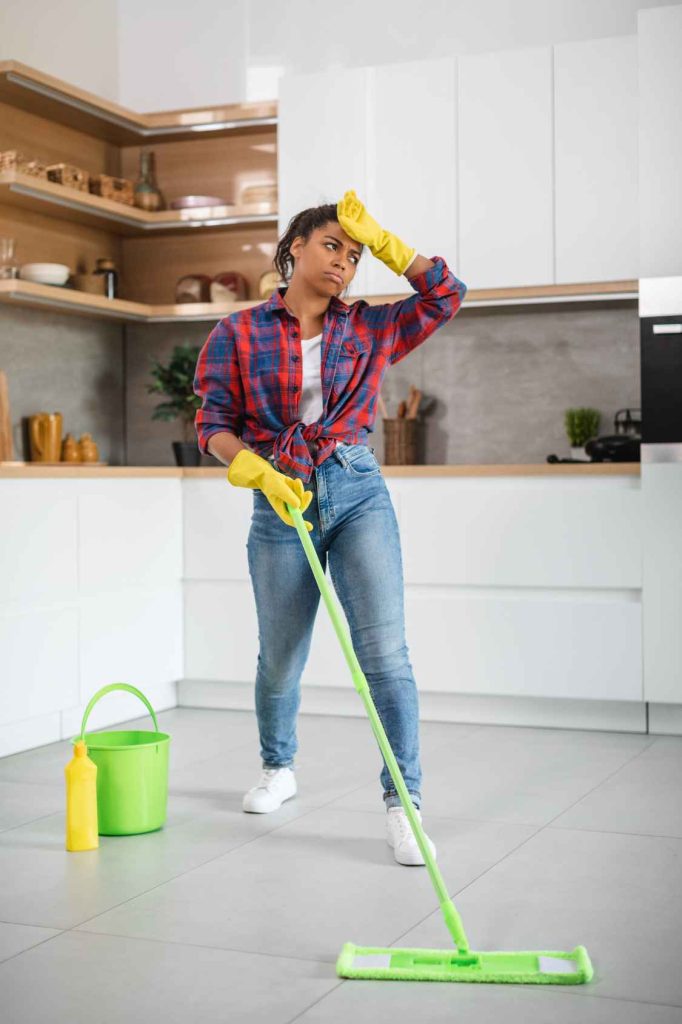
Mini-story:
Maya had just settled into her charming cottage-style home in Oregon. With a full-time job and two rescue dogs, cleaning wasn’t high on her to-do list—until she discovered the soak-and-walk-away method. One night, she poured a mixture of baking soda and vinegar into her sink and tub and walked away. The next morning? Everything wiped clean in seconds.
The Trick:
Soaking is your best friend. For hard-to-clean areas like ovens, toilets, sinks, or tubs, apply a simple mixture (like baking soda and vinegar or lemon juice and salt), let it sit for 30 minutes to a few hours, and let gravity do its thing. Come back and wipe—no elbow grease required.
Eco-friendly Bonus: Natural soaking agents mean no harmful fumes or water contamination.
2. Clean Your Air While You Sleep
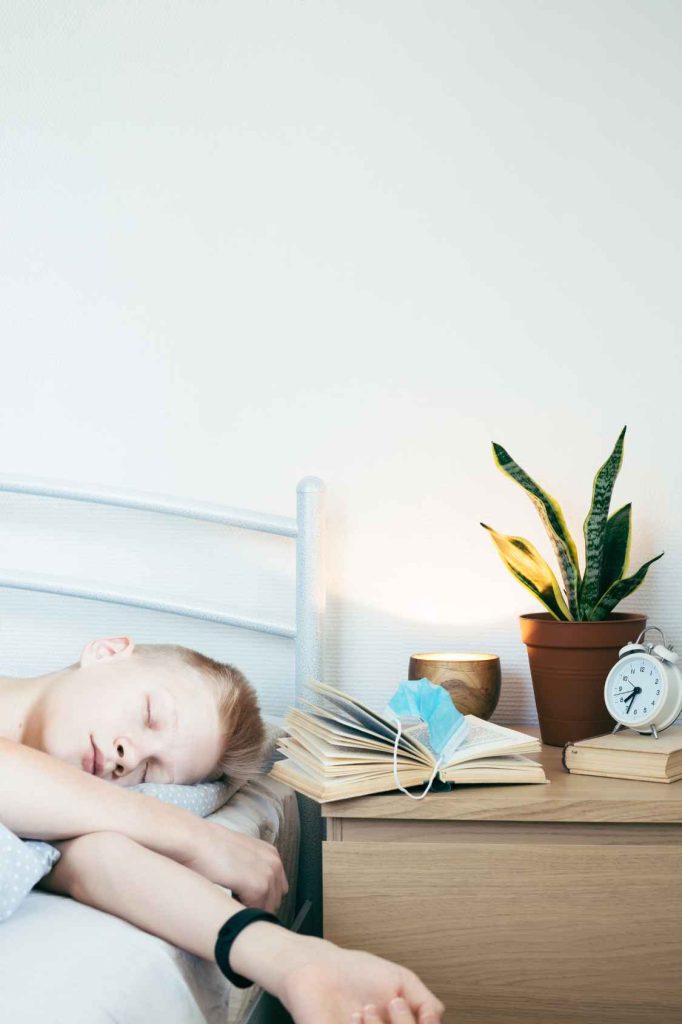
Mini-story:
Carlos, a software engineer in Texas, was always too tired to deep clean after work. Instead of fighting the mess, he focused on what he could clean passively—like his air. He invested in a few indoor plants and left bowls of baking soda around the house. Within days, the air smelled fresher and dust settled less.
The Trick:
Open windows for a few minutes daily. Place bowls of baking soda or white vinegar in corners to absorb odors. Add low-maintenance air-purifying plants like snake plants or peace lilies. These act as 24/7 housekeepers for your air—zero effort on your part.
Eco-friendly Bonus: Improves indoor air quality naturally without chemical sprays or artificial deodorizers.
3. Train Your Home to Clean Itself (Sort of)
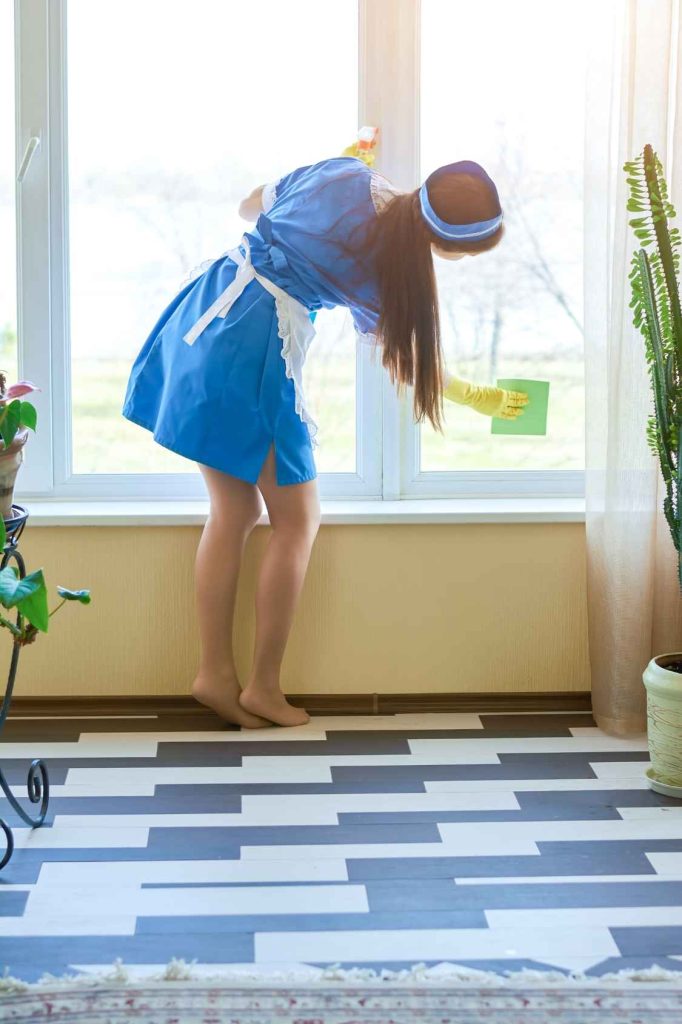
Mini-story:
Emma, a nurse and new homeowner in upstate New York, realized her floors were constantly dirty thanks to muddy boots and pet paws. Instead of obsessively vacuuming, she made her home do the work. She added machine-washable rugs at entry points and made the “no shoes inside” rule official.
The Trick:
Create cleaning traps: washable mats at entrances, covered bins for clutter, or placing microfiber cloths in high-use areas (like near the kitchen sink or bathroom). These “mini-stations” prevent mess before it spreads.
Eco-friendly Bonus: Reduces the need for frequent deep cleans and saves water and detergent in the long run.
4. Use the “While You’re There” Cleaning Habit
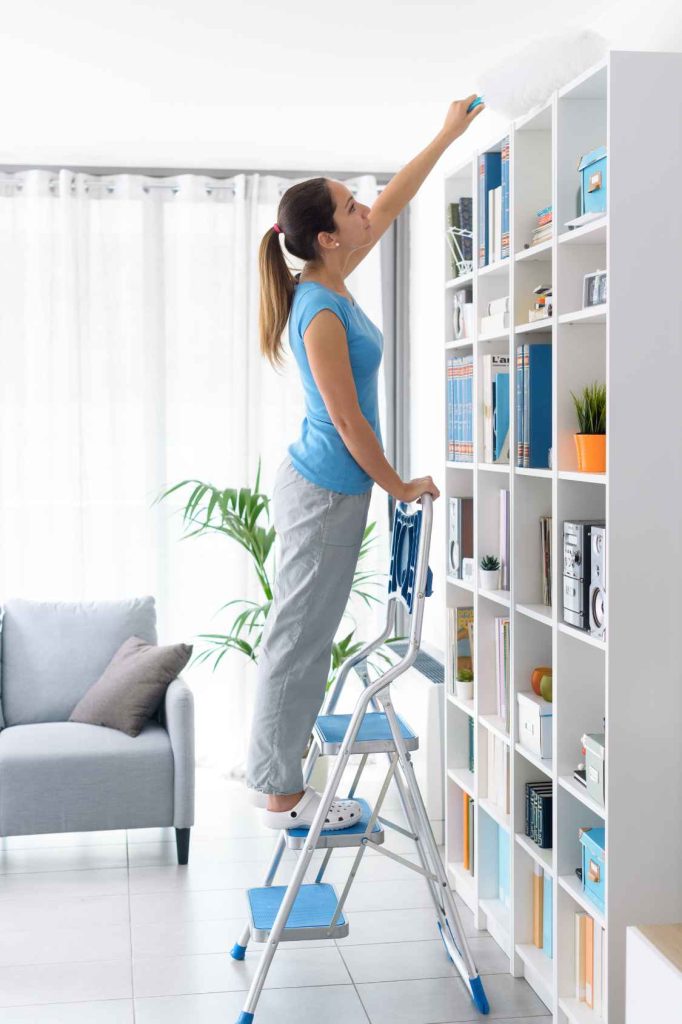
Mini-story:
Devin never liked cleaning the bathroom, but he loved long hot showers. One day, with his shampoo lathered in, he used a washable sponge glove to wipe down the tiles—and it became a habit. “I clean my shower… in the shower!” he now jokes to friends.
The Trick:
Clean while you’re already there. Wipe the mirror while brushing teeth. Scrub the tub during your shower. Toss in a laundry load while waiting for coffee. This trick transforms cleaning into background tasks—no extra effort needed.
Eco-friendly Bonus: You use less water, electricity, and energy by multitasking and reducing dedicated cleaning time.
5. Declutter Once, Clean Less Forever
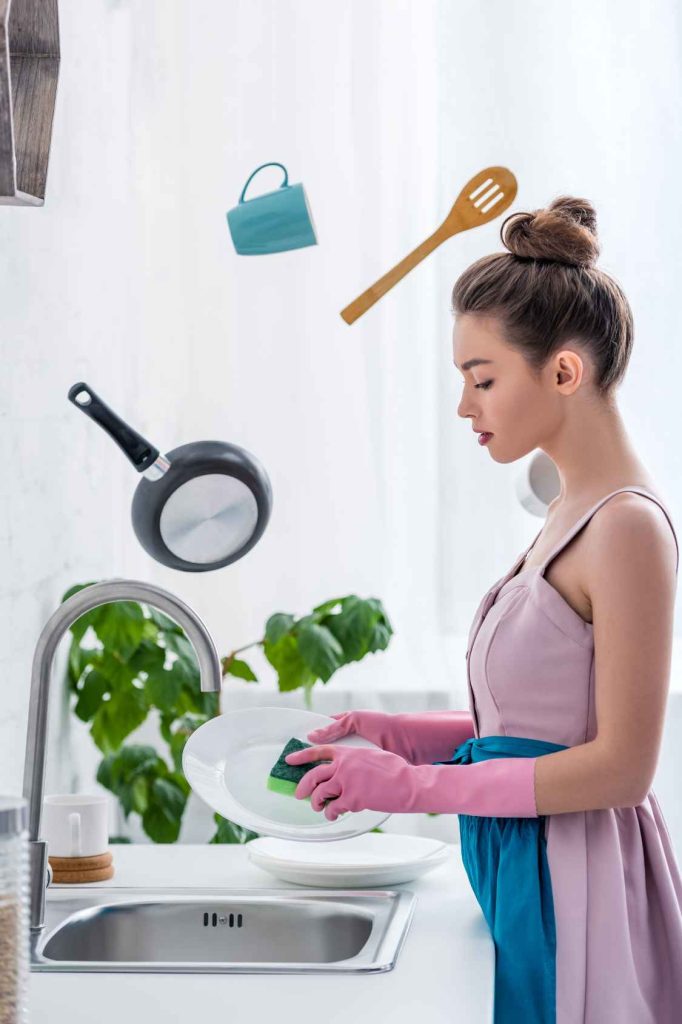
Mini-story:
Jessica loved her kitchen gadgets—until she had to clean around them. After moving into her new California home, she adopted a simple rule: “If it takes more than 10 seconds to dust, it’s too much stuff.” She decluttered her countertops and cut her cleaning time in half.
The Trick:
Clutter attracts dust and makes cleaning feel overwhelming. Embrace minimalism in high-touch areas. Fewer items = fewer things to clean around. Once you clear the clutter, every surface becomes a quick-swipe zone.
Eco-friendly Bonus: Reduces waste and discourages unnecessary buying. Donate or recycle unused items for a cleaner home and conscience.
Final Thoughts: Work Smarter, Not Harder
A clean home doesn’t have to be spotless, and you don’t have to become a full-time janitor to enjoy your space. When you combine a few smart habits with nature-powered, eco-friendly approaches, you build a home that works for you—not the other way around.
So whether you’re sipping tea on your porch or binge-watching your favorite show, these lazy-cleaning tricks will keep your home fresh, peaceful, and welcoming—all with the least effort possible.


Leave a Reply